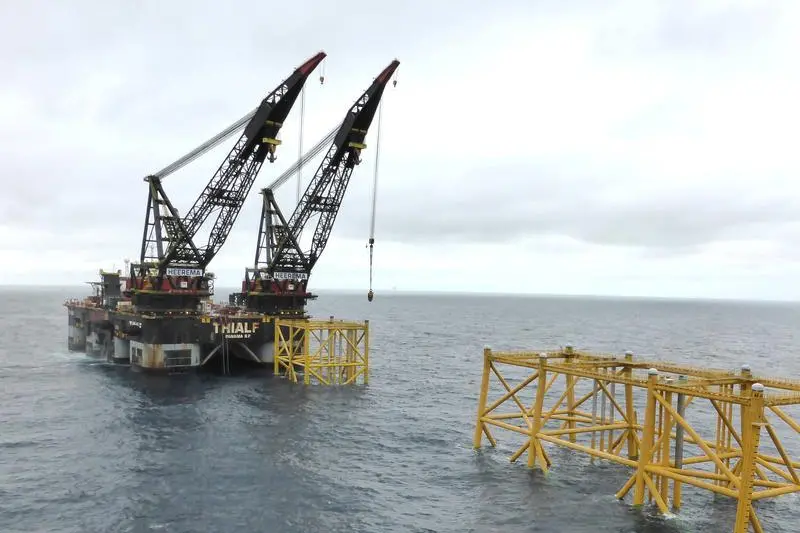PHOTO
LONDON - When it comes to oil majors and climate change, there are two camps. Predominantly American players like Exxon Mobil seem to be ignoring the imperative to get their business models aligned with limiting global warming to well below 2 degrees Celsius. European peers like Royal Dutch Shell appear much more engaged with the objectives of the so-called Paris agreements from 2015. New research implies a pox on both houses.
In one sense, Europe deserves its moral crown. Shell and Total are looking at how to address the emissions made by users of their oil, rather than just those made producing it. BP and Norway’s Equinor have pledged to assess how consistent their strategies are with Paris. That’s way more than most U.S. peers have committed to.
Yet new research by analysts at Carbon Tracker suggest that producers on both sides of the Atlantic may just be stationed at different positions on the same sinking ship. The analysis calculates how much CO2 could feasibly be emitted globally to stay in sight of Paris, and uses International Energy Agency assumptions of how much of that would come from the oil sector. Then it assumes that the allowable CO2 emissions will be created by projects lowest on the cost curve – with everything else stranded.
The results are problematic for oil majors on both sides of the Atlantic. Exxon Mobil may indeed have the greatest risk of stranded assets in a low carbon world, with more than 90% of potential spending on new projects over the next decade incompatible with a pathway that limited global warming to 1.6 degrees Celsius. But Shell’s figure is 70%, Total’s 67%, and BP’s 57%. Saudi’s oil giant Aramco, whose operations are extremely low-cost, comes in at 50-60%.
Oil executives may have an easy workaround. The absence of near-term viable alternative energy sources on a sufficient scale means we may just miss the Paris targets. Technological advances in the field of carbon capture may help square the circle.
The missing link is investors. The more they focus on environmental, social and governance issues, for which Paris will become ever more key, the more oil-major boards will be hassled or replaced if they don’t play ball. The groups can see this coming, and they also probably know that very few of them are doing anything like what’s needed - on either side of the Atlantic.
CONTEXT NEWS
- Oil and gas companies have approved $50 billion of investments since 2018 in major projects that undermine climate targets and threaten shareholder returns, according to a Sept. 6 report from think tank Carbon Tracker.
- The report found no major oil company was investing to support the Paris agreement goals of keeping global warming “well below” 2 degrees Celsius and to “pursue efforts” to limit it to a maximum of 1.5 degrees Celsius.
- Carbon Tracker identified several projects as not “Paris-compliant”, including Royal Dutch Shell’s $13 billion liquefied natural gas project in Canada, as well as BP, Chevron, Exxon Mobil and Equinor’s $4.3 billion Azeri-Chirag-Deepwater Gunashli oil project in Azerbaijan.
- BP said in a statement that it “supported the aim of the Paris Agreement”. The oil major said its strategy is to produce barrels of oil which, as well as being more economic, are lower risk and produce fewer emissions. This should help push high-carbon barrels out of the energy supply, it said. BP also pointed to its capital expenditure on renewable energy, which it said was around $500 million last year.
- A Shell spokesperson said the company agrees that the world is moving too slowly to tackle climate change. “We have set an ambition to reduce the Net Carbon Footprint of the energy products we sell by around half by the middle of the century, in step with society as it moves towards meeting the aims of Paris”.
(Editing by Liam Proud and Karen Kwok)
© Reuters News 2019





















